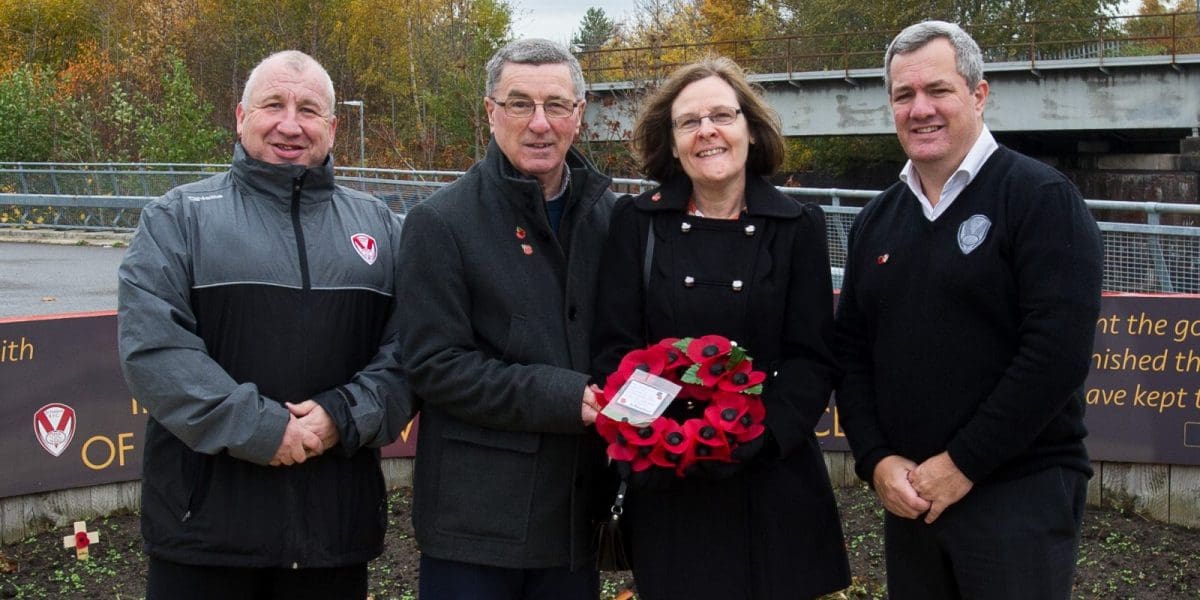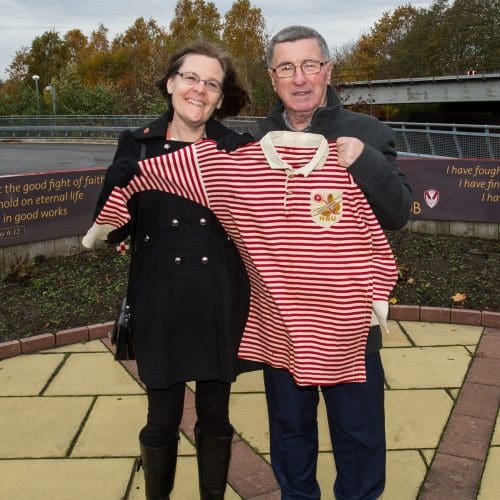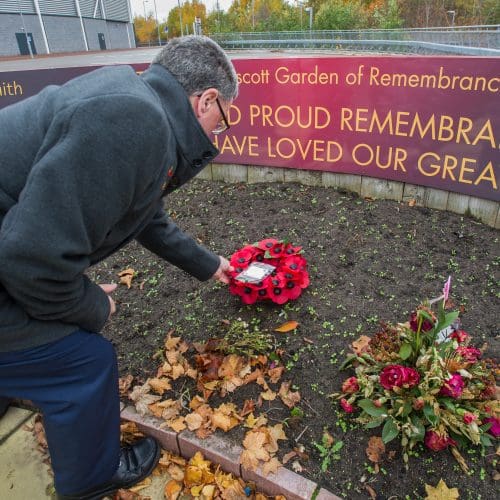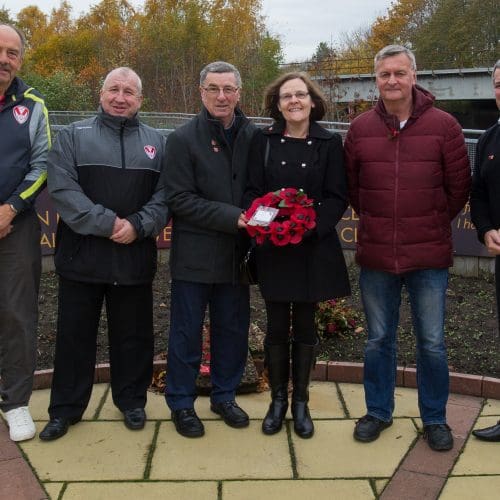The 11th hour of the 11th day of the 11th month is particularly poignant this year, commemorating, as it does, the 100th anniversary of the end of one of the most cataclysmic conflicts in history.
There are many families in our town who bore the brunt of grief from members being killed or wounded in the First World War. Many were undoubtedly supporters of the Saints and those who played for the club.
Two of the highest profile casualties were county representative winger Jimmy Flanagan, from Central Street and star New Zealand full-back Hubert Sidney [Jum] Turtill, from Christchurch, although he was originally born in London.
Flanagan, whose parents both came over from Ireland, worked at a chemical works before enlisting in the 11th South Lancashire Regiment – the famous St Helens Pals, raised by our own Club President, Lord Derby.
Pals battalions were special units of the British Army for men who had enlisted together in local recruiting drives – with the promise of serving alongside their friends instead of being sent to serve in regular army regiments. Other Saints’ players who joined the Pals included Walter Groves, Teddy McLoughlin and James ‘Butcher’ Prescott.
Scoring 125 tries and kicking three goals in 231 matches, Flanagan holds an impressive record as a Saints winger. A gifted player, he was able to play in a variety of positions, playing 151 matches on the wing, 76 in centre and four games at stand-off. Flanagan played in the 1914/15 Challenge Cup Final against Huddersfield, where the Saints were well-beaten 37-3.
Alas, the Lance Sergeant paid the ultimate price on Tuesday May 14 1918 and is buried at Arneke British Cemetery, Nord, France with 443 other casualties of war. His grandson, also named James, proudly possesses his campaign medals and his Lancashire jersey and cap to this day.
He is pictured laying a wreath at our Steve Prescott Garden of Remembrance with his wife Paula.
‘Jum’ Turtill, made his club debut on September 2 1909 against Hull KR and was the first player to kick more than 50 goals in a season for the Saints, [53 in 1909-10].
He also ran the Nelson Hotel in Bridge Street. He became the first publican in the town to join the military in September 1914. Tragically he was killed by shrapnel on April 9 1918 while serving for the Royal Engineers
It is sad to relate that Company Quartermaster Sergeant Harry Mercer sent a letter back home from the front to Jum’s wife, part of which is reproduced here:
“I dread the task which I am now performing, knowing as I do the news I am giving you must cause both yourself and the dear little kiddies Sid loved so well, the greatest pain and suffering. Poor old Sid, he has had to pay a great price by sacrificing his life in the cause of humanity, fighting for freedom, and his King and country.”
It should be noted that before joining up Mercer was the Secretary of St.Helens R.F.C.
“He was loved by all who knew him,” added Harry, “and those who, like myself, have been privileged to be his comrades both on the playing fields of England and the battlefields of France, will miss him more than words can express.”
We can only imagine the tremendous heart-break of having to undertake such a task and the effect on his family back home.
Then there is the tragedy that hit the family of Albert Graham, Saints’ utility back of the 1920s. One of twelve from Morley Street, he lost two of his brothers in France during the conflict, unfortunately not an un-common occurrence in such terrible times.
One of them, Gunner John Graham, of the Royal Field Artillery, was killed in action on November 6 1918, aged 20, less than a week before the Armistice.
19-year-old, George Sephton, a tough forward who scored three tries in 28 matches for the club in 1916-1917, also sadly died from disease just after the conclusion of the war, after being positioned with the Royal Naval Volunteer Reserve as Telegraph Operator on HMS President IV.
Finally, Saints First Team Player James Ford, was killed in action on March 9 1915, aged 28. He was part of the South Lancashire Regiment.
These are just some examples of how the 1914-18 conflict had such a profound effect on not just those associated with our great club and town, but to communities far and wide. For those who made the ultimate sacrifice, we will remember them.
“Lest We Forget.”

















































